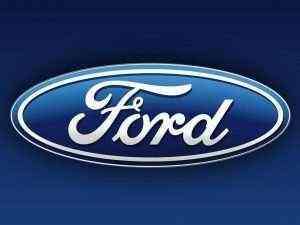
Download this guide to learn how to identify the core software your business needs and get your colleagues on board. Accurate data is very crucial if you want to manage capital projects efficiently. To create a realistic budget and generate valuable reports, you need to gather reliable information.
OpEx are generally deducted from revenue as an expense and the profits that are left over are invested in CapEx, to create future growth and opportunity. In this brief guide, we’ll cover what capital expenditure is, as well as why understanding it is critical, regardless of the industry your business is in. We help your organization save time, increase productivity and accelerate growth. Analysts regularly evaluate a company’s ability to generate cash flow and consider it one of the main ways a company can create shareholder value.
More meanings of capex
Depreciation helps to spread out the cost of an asset over many years instead of expensing the total cost in the year it was purchased. Depreciation allows companies to earn revenue from the asset while expensing a portion of its cost each year until the asset’s useful life has ended. Although the expenditures are beneficial to a company, they often require a significant outlay of money.
- Since long-term assets provide income-generating value for a company for a period of years, companies are not allowed to deduct the full cost of the asset in the year the expense is incurred.
- Financing capital expenditures require large sums of money which means the management of the organization may end up borrowing from lending institutions.
- In financial modeling and valuation, an analyst will calculate free cash flows in a DCF model to determine the net present value (NPV) of the business.
- For example, if an asset costs $10,000 and is expected to be in use for five years, $2,000 may be charged to depreciation in each year over the next five years.
- Capital expenditure (CapEx) is money that is spent to acquire, repair, update, or improve a fixed company asset, such as a building, business, or equipment.
Both choices can be good for your company, and different choices might be needed for different projects. Capital investment decisions are a driver of the direction of the organization. The long-term strategic goals, as well as the budgeting process of a company, need to be in place before authorization of capital expenditures. The effect of capital expenditure decisions usually extends into the future. The range of current production or manufacturing activities is mainly a result of past capital expenditures. Similarly, the current decisions on capital expenditures will have a major influence on the future activities of the company.
Capital Expenditure (CapEx) Definition, Formula, and Examples
Without a full picture of the useful life of assets being invested in, you could lose out on some fairly significant tax advantages. Capital expenditures are an outflow of cash listed within investing activities. Technology and computer equipment, including servers, laptops, desktop computers, and peripherals would be capital expenditures if they fit the appropriate criteria.

According to Gartner, after a decline in IT spending in 2020, spending has picked up significantly in 2021. Experts project that worldwide IT spending will increase 6.2% to total $3.9 trillion. debits and credits CapEx investments in compliance with regulatory requirements, such as environmental or safety regulations, can help you avoid fines and penalties—and protect your reputation.
Capex on the Cash Flow Statement
Capex can be calculated from a balance sheet or a company’s cash flow statement. Capex is used to buy or invest in tangible capital assets, such as real estate; raw materials; and plant, property and equipment (PP&E). Intangible, nonphysical assets, such as patents and licenses, also qualify as Capex. Finances used to cater for operating expenses are not very high despite being regularly incurred.
Climate data and net zero: Closing the gap on investors’ data needs – PRI
Climate data and net zero: Closing the gap on investors’ data needs.
Posted: Mon, 04 Sep 2023 08:16:35 GMT [source]
Growth Capital Expenditure is money you spend on projects or assets to expand your business, improve operations, or increase income over time. Capital expenditures are related to growing and improving the assets of a business. Operational expenditures (OpEx), on the other hand, are expenditures related to the day-to-day operation of a business. Capital expenditure is money a company uses to acquire new assets, add to current assets, or improve assets for the benefit of improving a business, such as buying new equipment.
Related Software Categories
It is important to highlight that all assets bought under capital expenditure depreciate with time. Capital expenditures (CapEx) refers to the money a company spends towards fixed assets, such as the purchase, maintenance, and improvement of buildings, vehicles, equipment, or land. You might also hear this called PP&E, short for property, plant, and equipment. Capital expenditures (CapEx) are funds you use to acquire, upgrade, or maintain assets that provide long-term value. These could be physical assets like property or equipment or intangible assets like patents or software.
Globalstar Purchases SpaceX Launches for $64 Million – OPP.Today
Globalstar Purchases SpaceX Launches for $64 Million.
Posted: Fri, 01 Sep 2023 19:51:39 GMT [source]
By understanding the total cost of acquiring or improving an asset and estimating its future salvage value, you can accurately calculate the expected return on investment. It’ll also give you information to help you decide when to replace or upgrade. Intangible CapEx assets are non-physical assets you can’t see or touch but can still provide long-term value. Maintenance CapEx refers https://online-accounting.net/ to expenses made to maintain or repair existing assets to ensure they function correctly. This enables you, as the business owner, to match the economic benefits of the items you are buying with the costs in a given period of time. In summary, CapEx is the money an organization spends to buy, maintain, or improve its assets to increase its scope and economic performance.
Capital Expenditure
In short, any expenditures related to acquiring new assets such as those listed above or upgrading these assets is a type of capital expenditure. Therefore, there are several types of purchases that may be considered CapEx. The amount of capital expenditures a company is likely to have depends on the industry. Some of the most capital-intensive industries have the highest levels of capital expenditures, including oil exploration and production, telecommunications, manufacturing, and utility industries. For example, the purchase of office supplies like printer ink and paper would not fall under-investing activities, but instead as an operating expense. In financial modeling and valuation, an analyst will calculate free cash flows in a DCF model to determine the net present value (NPV) of the business.
- Capital investments in physical assets like buildings, equipment, or property offer the potential of providing benefits in the long run but will need a large monetary outlay initially.
- Major capital projects involving huge amounts of capital expenditures can get out of control quite easily if mishandled and end up costing an organization a lot of money.
- Capital expenditures are often used to undertake new projects or investments by a company.
- If you’re just starting your ecommerce business, you may not be in the position to invest millions of dollars in upgrading your business.
- Download this guide to learn how to identify the core software your business needs and get your colleagues on board.
Spend cash on improving your business’s efficiency with technology that can help streamline operations, reduce waste, and optimize processes. Whether you’re a business owner, CFO, or investor, this guide will help you understand the importance of CapEx and how to make informed decisions from now on. Think about large companies like Google, AT&T, and Apple with large data centers, 5G networks, and fulfillment centers, respectively.
However, the accounting concept of depreciation allows you to expense the asset’s cost over its useful life—you can maximize its value and minimize its overall cost. Market conditions, regulatory changes and other unforeseen events can affect your CapEx investments. You might find it difficult to accurately forecast CapEx return on investment, leading to unexpected costs or delays. They could include rent, utilities, employee salaries, insurance, marketing expenses, supplies, and other costs related to your regular operations.
